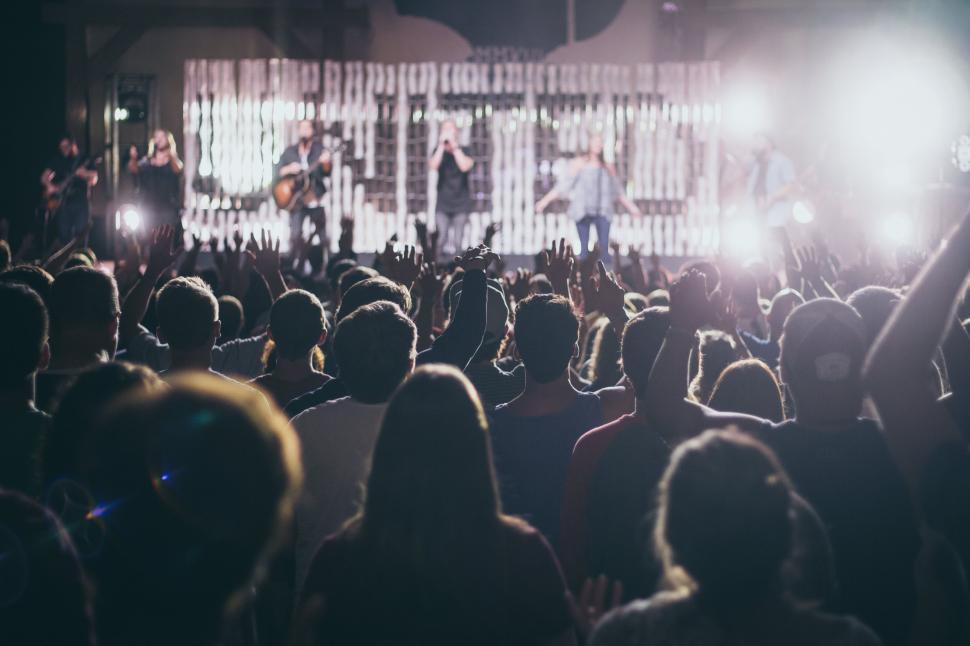Harmonising Inclusivity: Transforming live music with accessibility initiatives
It’s a given that we’re all deserving of fulfilling social lives, and for many people, live music is an integral part of that. However, a significant portion of disabled people face exclusion as a result of a lack of accommodations in these crowded, easily overwhelming environments. The latest State of Access report by disability charity Attitude is Everything found that 82% of disabled people had faced issues in just booking access. The report also revealed that one third of venues offer no access information on their website, a figure that rises to almost 70% for independent venues.
One woman I spoke to noted that even if information was present; it was sometimes inaccurate: “One theatre said they welcomed disabled customers but there were 18 steps down to the performance area”. It’s also not uncommon for venues to consider a long-winded detour to a back entrance as sufficient disabled access, failing to offer true parity.
Even when there are procedures in place for disabled and neurodivergent people, it isn’t always easy to obtain. To be considered eligible for accessible seating or carer tickets, many venues require proof of PIP receipt – a disability benefit with a complex application process, twelve pages of forms and lengthy waiting times.
A choice on whether to compromise their health in order to obtain a reasonable view at concerts
The situation is improving nonetheless. For example, whilst Warwick’s The Copper Rooms’ pretty persistent use of strobe lighting has agonisingly deprived me of the famed Pop! experience, its wheelchair access does place it ahead of many other venues of its kind. There may not always be clear solutions; in many older buildings, often independent venues, it becomes difficult to preserve historical integrity whilst simultaneously facilitating level access.
Arenas and larger venues are fortunately usually better equipped for accommodating a range of additional needs with designated accessible tickets and greater resources. There are, however, a committed – or unhinged – minority who queue for days or hours before doors open in the hope of securing a spot near the front. Camping out from the early hours of the morning is an unpleasant experience for anyone, but for even the most devoted disabled fans, who may struggle to stand for long periods of time, would be virtually impossible. The lengthening of these queues post-COVID has left many people with physical disabilities facing a choice on whether to compromise their health in order to obtain a reasonable view at concerts.
And for those with hidden disabilities, it can be even harder. In a discussion about the specific challenges these lines pose, one gig attendee explained “I have an autistic family member, and these long queues cause great distress to him and oftentimes ruins his night before it has properly started”.
Many neurodivergent people, and those that suffer with anxiety in crowded environments require extra support. Furthermore, many venues have unreserved seating, meaning those who suffer from panic attacks or sensory overload are not guaranteed an easy escape route to a less stimulating environment.
Specialist support opens up the door for those who’ve previously avoided concert environments
Flashing lights, a feature of almost all gigs, can be a trigger for more than just photosensitive seizures, especially for those with sensory processing issues. One concertgoer I spoke to explained “Flashing lights can ruin an experience even if I do not suffer any physical effects as it is distracting and stressful”. Whilst strobe lights can be an important part of the concert experience for some, they’re often unnecessary. Smaller, more intimate venues can host successful and atmospheric nights without extensive visual effects, a decision certainly worth considering in efforts to promote inclusion within the live music industry.
Another is the emergence of initiatives such as the LIVELIVE Project, providing mental health support on-site and a safe space to offer those who may want a break from the concert. Reassurance of the availability of specialist support opens up the door for those who’ve previously avoided concert environments in fear of panic attacks or sensory overload to participate.
It was launched by chart-topping singer-songwriter Lewis Capaldi, who has been open about his mental health, notably pulling out of Reading and Leeds Festivals earlier this year come to terms with his diagnosis of Tourette Syndrome. These qualified professionals will be available at every date on his upcoming tour – a similar service for other artists is also offered by Sussex charity Stay Up Late.
When it comes to inclusion, our very own Warwick Arts Centre can be looked to for inspiration in this department, pioneering relaxed performances more suitable for those sensitive to sudden noises or movements with ‘quiet spaces’ in addition to their provision of captioned and audio-described showings.
On a final note: when we neglect accessibility, we all lose out. Live music contributed over £1.1 billion to the UK economy in 2018. Adapting venues and training staff to accommodate disabled and neurodivergent people can be pricey – but with 24% of the UK population having a disability, the potential rewards are extensive.

Comments